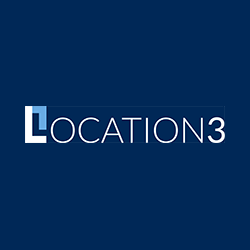Many consumers want to support local businesses, but few are willing to sacrifice the convenience national retailers offer.
Bookshop.org, a digital bookseller that gives 80% of its profit margin to independent bookstores, faces a particularly massive competitor in Amazon due to the retail giant’s wide selection and built-in loyalty from the Prime membership program, according to founder and CEO Andy Hunter.
Despite the odds, Bookshop.org is thriving, Hunter told CX Dive. The company has raised more than $39 million for independent bookstores since it launched in 2020, and sales are growing 50% year-over-year.
The company’s secret to winning customers is to lead with its emphasis on supporting local businesses and a great initial experience, then build loyalty by emphasizing a human touch, including recommendations that don’t rely on algorithms.
“We couldn't compete with Amazon on bells and whistles of functionality, but we could make it as simple as possible and make people make sure that our customers felt good and understood they were making a difference,” Hunter said.
Simplicity is a necessity
The top priority in Bookshop.org’s experience design is making shopping as easy as possible.
Bookshop.org can’t match Amazon or other large retailers on price, according to Hunter. While that may not be a problem — readers are often willing to pay more to support independent bookstores — that doesn’t mean customers will put up with a clunky browsing experience.
Technical savvy shouldn’t be necessary for easy browsing, according to Hunter. As a result, his goal when building Bookshop.org was that his mother could use the site.
“My mom is somebody who it took a year before she could open a FaceTime call on the iPad that me and my brothers got for her,” Hunter said.
Bookshop.org calls upon its independent bookstore partners to help enhance the browsing experience as well. Businesses can create book lists that curate top picks around relevant genres or themes to help customers find recommendations for their next read.
This approach not only assists with discoverability, but helps customers find bookstores with similar tastes to their own, according to Hunter.
Search is also an important part of a great experience, too. Bookshop.org is continuously looking for ways to improve its search engine, including exploring natural language search options, Hunter said.
Loyalty without a loyalty program
While a convenient buying experience can earn that first purchase, building long-term loyalty presents a different problem altogether.
“There are a lot of times when people will be motivated one day to do something — they hear about a bookstore in crisis, and so they come in and buy a book,” Hunter said. “But to have them become a customer is a huge challenge. And it's a bigger challenge for us than other retailers, because we don't have the money to do big loyalty programs with cash back like that.”
Bookshop.org’s ability to offer discounts is hampered by its low profit margins, according to Hunter. When 80% of profits go to independent bookstores, you can’t incentivize customers to sign up for a mailing list by offering 30% off the next order.
Instead of promotions, the digital bookseller builds loyalty by emphasizing the human element and sense of community its partners foster. This approach includes onboarding emails with testimony from independent bookstores and prominent positioning of book lists across the website.
The goal is to make Bookshop.org feel less like a retail site and more like a community of people who love books.
“That's a big differentiator, because everything else on the web is like, ‘This is what the algorithm thinks that you're going to want to read,” Hunter said. “When you go into an independent bookstore in-person, a bookseller can tell you, ‘Oh, you loved this one book? I know you're going to love this Sarah J. Maas book,’ and hand you the book.”
Improving accessibility
Part of the Bookshop.org experience is making it accessible to everyone, including those with disabilities that might impact their reading or browsing experience.
Bookshop.org recently updated its e-book platform with customizable options including margin adjustments, multiple dark modes and an expanded font selection that includes a dyslexia-friendly option, according to Hunter.
The most important reason for accessibility efforts is supporting people with visual or cognitive processing preferences, Hunter said. “I think it’s a moral issue to be able to make sure you support all readers on the platform.”
Improving accessibility also builds a bigger tent for Bookshop.org’s audience, according to Hunter. A significant number of people are vision impaired, and they are just as likely to want to support local bookstores as anyone else.
Accessibility isn’t the only area where CX improvements are in store. The company’s growth enabled it to hire a UX engineer and a dead of product for the first time this year, and the company will continue working to offer a great experience for all customers.
“It's like a moving target,” Hunter said. “We're not done. We still have edge cases and ways that we can improve our accessibility. It's not just compliance of various laws or hitting user feedback, but it's really a commitment to serving every reader where they are.”





















